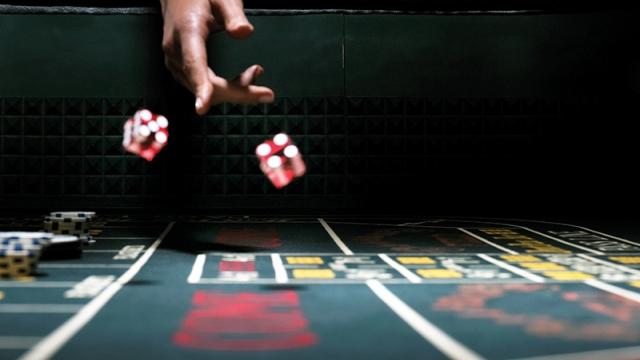
As Louisiana faces a budget shortfall, the state legislature is quickly moving toward expanding legal gambling, rather than enacting a modest tax increase on wealthy individuals or eliminating tax exemptions for businesses – moves that other states and local communities have done in order to generate more revenue. As a result, experts say, Louisiana's proposal will fail to provide sustainable funding for critical services such as education and healthcare.
"State Revenues from Gambling: Short-term Relief, Long-term Disappointment," an influential report published by the Nelson A. Rockefeller Institute of Government, provides a comprehensive study of states that have turned to gambling as a source to plug budget gaps. In times of fiscal stress, states look to this source of revenue as an easier target than raising taxes on individuals or powerful business interests. The downside is that revenues generated from gambling don't address long-term fiscal solutions and may even exacerbate state budgets over time.
Louisiana is a perfect case in point. The state faces a $1 billion budget cut on July 1. In 2016, Louisiana faced a similar budget shortfall and increased the state sales tax, but those taxes expire this July. In the eight years prior, the legislature supported by Republican Gov. Bobby Jindal slashed taxes and increased tax credits, resulting in massive cuts to education and healthcare. This coupled with a decline in oil and gas revenue created the budget shortfall that the state is still grappling with.
Current bills in the legislature would expand casino gambling in the state by removing certain legal requirements that are in place. Legalized gambling has primarily been opposed because of its harmful effects on society, particularly on the poor and working class. Expanding gambling doesn't clearly correlate with a rise in social problems. However, according to the Rockefeller Institute study: “Despite the differences in research findings, one cannot deny that there are substantial social and economic costs related to problem and pathological gambling.”
Another study, “Understanding the Influence of Gambling Opportunities”, conducted by two Harvard Medical School researchers, reported that the greatest increase in spending following an expansion of gambling was among lower socio-economic classes. They also reported a higher rate of gambling problems among casino workers, who are generally touted by supporters of legalized gambling as beneficiaries of the changes.
The fact is, for most workers in the industry, wages won’t put them in the middle class, and some may even remain below the federal poverty level. The Bureau of Labor Statistics lists the average annual salary for food preparers and servers at $25,700 – just a hair above the $25,100 income that puts a family of four below the federal poverty level. (There is still no federal definition of "middle class," but the Pew Research Center puts the figure at around $48,000 for a family of four, depending on location).
In New Orleans, where Harrah’s Casino is currently seeking approval from the Louisiana legislature to build another hotel, the lower-end cost for renting a two-bedroom, one-bathroom apartment is $850. The average salary for front-line service personnel like bellhops and dealers – who make up about one-third of the industry's employees – is $29,570. Last year, Harrah’s New Orleans and Casino Hotel generated $270 million in revenue, less than in previous years, according to its owner, Caesar’s Entertainment.
But the trend of short-term gambling revenues tapering off, or going into decline, has already been seen in other states – which raises the question of why Louisiana would want to embark on a similar, ill-conceived plan.
“If states are looking to gambling to balance their budgets, they may be rolling the dice themselves,” said Jackson Brainerd, a policy associate with the National Conference of State Legislatures, a bipartisan NGO that provides research and other assistance to state legislatures. Revenues from gambling have increased since 2009, but not all types and businesses benefit. Caesar’s Entertainment declared bankruptcy in 2015, and five casinos in the gambling mecca of Atlantic City, New Jersey, have closed, including Trump Taj Mahal in October 2016, resulting in 3,000 layoffs.
Oversaturation isn't the only concern for gaming analysts. Cannibalization, where one gaming business eliminates another, or one form of gambling reduces spending in another, has occurred in Missouri, Illinois and Pennsylvania. Gambling can cut into discretionary spending as individuals spend money at casinos or lottery as opposed to restaurants or movies.
Casinos and lotteries are facing a trend from millennials who, unlike older Americans, don't appear to like gambling their money on the lottery or slots. Instead, millennials are more attracted to online gaming such as fantasy sports, something that's more difficult to regulate and tax for state authorities. Casino operators have begun to move toward catering to the millennial market, but it's still too early to tell if this will pay off for the industry.
While Louisiana may end up filling its budget hole this year due to a short-term gambling fix, it will likely be forced to revisit this source of revenue in the coming years – and could well discover, too late, that by gambling with its state revenue sources, it came up with snake eyes.













